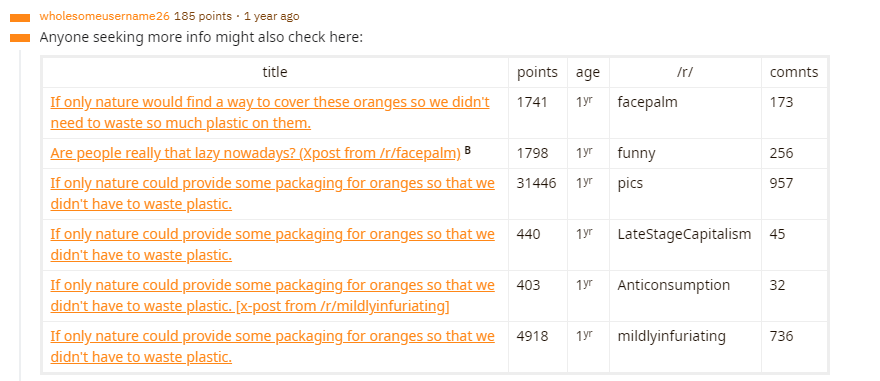To begin my blog post I would like to share this groovy animated Frank Zappa interview on fads.
Among the themes discussed, I would like to give a special attention to this specific idea given by Zappa, which I’ll be using as my core definition of fads and how they work within society.
Interviewer: Why do you think America is so fad crazy then? Because you seem to see everything in terms of fads.
“I think that is a reasonable way to look at it. Because it doesn’t have any real sort of values you know? And a fad provides you with a temporary occupation for your imagination. Really, it doesn’t have any real culture. It doesn’t have any real art. It doesn’t have any real anything. It’s just got fads and a gross national product and a lot of inflation.” – Frank Zappa
There’s a multitude of ways of seeing fads in relation to digital media in our present-day society. Be it on seeing social media as fads themselves, which infects the phones of every teenager for an ephemeral amount of time, and then vanish from our sight the moment they run out of innovative entertaining features. Or the subjects which are commonly considered as important inside the social media, and hence are given priority and relevance by most users until it’s light is overgrown by a new issue, which is most probably just as consistent in the ongoing society as the previous unresolved and obscured one. I do not want to sound displeased and demoralize the efforts done daily by social media users, that attempt to expose and issue forth the flaws of our society. But from what I have noticed as a common behaviour in social media, individuals keep circulating on top of the same “impacting” images or texts over and over, in what seems to me at first glance, a pursuit for social confirmation and sense of “I’m making a difference”.
Of course these individuals are making a difference, a minor difference, and from what I have noticed, people hardly have a relevant amount of friends in social media which are not from the same social niche, and thus like-minded. So if one publishes an image concerning global warming in their Instagram story, the public that will be reached by that image is most probably already very concerned about global warming, and likely shares a similar viewpoint to the one being exposed. If the communicator of the content, who is doubtlessly aware that his Instagram followers share a similar idea upon global warming still believes that it is of great pertinence to make a statement such as this, is this individual really making that statement to increase social awareness over a phenomenon or rather to be flatter with Direct Messages glorifying his enlightened perspective?
To enfeeble my revelation, one may argue that maybe this individual made that post to keep up with the disagreement towards that issue, and this way avoiding it from becoming irrelevant by constantly reminding his peers of what a dangerous future that complication can lead us to. But if that was purely the reason, shouldn’t this individual always come up with new or different attacks to that issue instead of repeatedly sharing the same images and texts? That way broadening the spectrum of arguments instead of binding themselves to the same loop of thought?
Or even better, why not create their own authentic content upon the subject instead of sharing the most lionized texts, which by this time have become cliches and thus less impactful? To contextualize my angle, and not make it sound like sheer grumble, I would like to take this Reddit post as an example.
The post makes a great point, an astute comment on the overuse of plastic package in supermarkets. I, by all manners, thoroughly agree with the fact that the amount of plastic found in supermarkets is unbearable. But I’ve seen a similar image with a similar text being shared on Instagram and Facebook so many times that it has just become irrelevant and unimpressive. Independently of how valuable and of great magnitude the underlying aspiration for a better world the act of sharing envisage, the saturation on the usage of this criticism completely stultifies it’s intent. Leading the criticism on this subject to turn itself into a fad, something without any sort of real values, just a mean to get involved. Something that just brings reassurance to its communicators, and provide themselves with the sense of “ I want change, I’m complaining on social media, therefore, I’m making a difference”. Whereupon if analysed from a distance, the complaint is not really generating anything, it’s just a loud repetition of principles. As a matter of fact, on the original post on Reddit, users have actually clarified the reason for the stupendous amount of plastic in supermarkets, and although the excuses are not so justifiable, it has clearly not followed the fame the image and objection had. For of course, the criticism would be of lesser importance, and then the sense of aiming for a better world would be diminished.

As the first comment mentioned, the critic has actually become a meme, which mocks in itself the repetitive and overvalued nature of the post. And for my content, I’m not the only one quarreling over the overuse of this statement. One of the users has made a comment linking to many other posts made by different Reddit users, that say exactly the same thing as the original objection.

I know that this blog post looks rather pessimistic and cataclysmic, but I believe it is of great relevance to comment on how we sell ourselves so easily to principles which are not our own.
If it was really about changing the world, wouldn’t this users use a bit of their innate creativity to change at least a bit of their attack? Therefore contributing with more arguments to their cause? There is no real concern here, just a magnification of a comment, that is used again and again to mask the uncertainties that trouble the mind of this individuals. Just by binding to oneself a fad, the pledge for social acceptance and respect is inevitable and unassailable. Until a new fad emerges to occupy the imagination of these folks, and those who do not adapt on time, are then retained as non-essential.
The idea of selling an image of yourself in social media which is not completely equal to the one in actuality is already being massively discussed. And it is utterly impossible to escape from falling into this trap, since wanting it or not, there is no way of thoroughly representing yourself in social media. And although I’m heavily criticizing this phenomenon, I myself also take part in it. This whole text is hypocritical in its own essence, it’s all part of the fad of complaining about fads. In the end, the platforms that internet provides us, leave us with an everlasting discord over contrasting poles. That is because, everyone who has access to social media can publicly share their opinion, and the ease of doing so, provide us with the feeling of being inconsequential, even though the most recurrent method is written report, which ephemerality is of no comparison to spoken words. The internet, mainly social media, make activists of us all. Lazy, distasteful, confirmation seeking activists. Who blindly follow the believe that our words are of remarkable importance, and hence, should be read and heard in all corners of the universe. I’m not stating that we should not complain about the exaggerated use of plastic, just that the daily bombardment of discontent on social media, even on the most quixotic scenario, will hardly bring anything apart from a few applause.
(Just as a final remark, social media can and has brought a series of episodes where it served as a platform to bring together ideas that had an actual impact on the real world, such as the well-known Iranian Green Movement a.k.a Persian Spring. But this post is regarding the recurrence of groundless objections on socially acclaimed themes, that make a prominent daily appearance on social media.)



Recent Comments